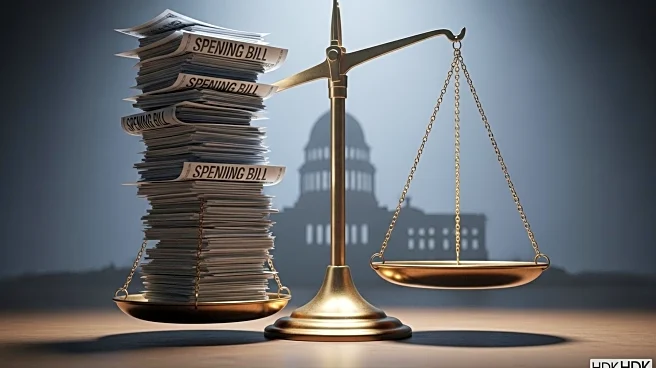What is the story about?
What's Happening?
The federal government is on the brink of a shutdown unless Congress approves a spending bill before October 1. The disagreement between Republicans and Democrats centers around extending enhanced premium subsidies for Affordable Care Act coverage. A shutdown could disrupt the lives of many Americans, particularly federal employees who would not receive pay. Previous shutdowns have led to closures of national parks and museums, stalled food inspections, canceled immigration hearings, and delayed federal lending to homebuyers and small businesses.
Why It's Important?
A government shutdown would have widespread effects on various sectors, including tourism, food safety, and immigration. Federal employees face financial uncertainty, and essential services may be disrupted. The political impasse highlights ongoing challenges in reaching bipartisan agreements on critical issues like healthcare funding, which could have long-term implications for public policy and government operations.
What's Next?
If the shutdown occurs, essential government functions will continue, but many services will be halted. Social Security payments will still be distributed, but other areas may face significant delays. The political standoff may lead to increased pressure on lawmakers to find a compromise, potentially affecting future negotiations on healthcare and budgetary issues.
Beyond the Headlines
The potential shutdown underscores the fragility of bipartisan cooperation in Congress and raises questions about the effectiveness of current legislative processes. The impact on federal employees and services may lead to public dissatisfaction and calls for reform in government operations.















